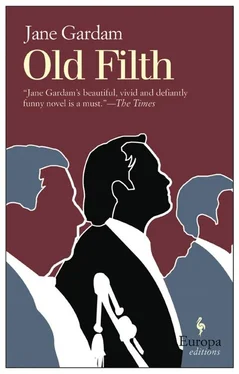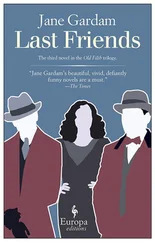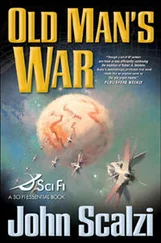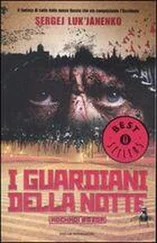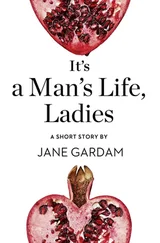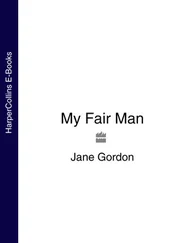Alistair rose and limped about, his crooked shadow every- where. Outside in the steaming night there was an upsurge of voices across the compound and the crowing of a cock. A drum began to beat.
“It’s the festival. They’re sacrificing a cockerel.”
“You don’t need to tell me, Auntie May.”
“Your son is watching. Do you think this is the right way of life for a Christian child?”
“He isn’t a Christian child.”
“Yes, he is. I saw to that. He was baptised at birth. His mother held him. It’s not the Baptist way but she asked for it. In case he didn’t survive the river boat. He is baptised in the name of the Father, Son and Holy Spirit who have nothing to do with the slitting of a cock’s gullet at the full moon.”
“They are calling on their god,” said Alistair. “There is no God but God. I’m nearer to their gods than yours ever was to me in 1914. Can the child not go on as he is?”
“No,” she said and left it at that.
The next day she went looking for Edward and found him in the river shallows where Ada on the bank was rubbing at coloured cloths, the pair of them calling and laughing. Other children stood in the water sending showers of it over each other and Edward and Ada, with their round dark hands. Edward began to do the same and kicked more of it about with his long white feet. Ada, pretending to be furious, dropped her cloths and ran in amongst them, splashing back. All the heads bobbed away into the rocks like black floats. Edward splashed forward and took Ada round the waist and buried his face against her thighs. “You are my leopard,” cried Edward Feathers in the Malay of the compound. “My beautiful leopard and I want to eat you alive.”
This, thought Auntie May, will not do.
That night at dinner she said so.
“He goes Home, Alistair. If you won’t take him, I will. I’m due some leave, too. There will be other English children on board. There always are. I’m told there may be two of his cousins joining a ship Home from Ceylon. We may pick them up. We shall be able to go the short way through Suez next year. Your sisters must organise warm clothes for Liverpool.”
“They wouldn’t know how,” said Alistair. “They’re independent spinsters. Play a lot of golf.”
“Very well. I’ll contact the Baptists. In Lancashire and in Wales. And I shall also—” she looked hard at him “—inform the Foreign Office. How well do you know your son, I wonder?”
“I see him.”
“I’ve sent for him to come here now. Tonight.” She clapped her hands and shouted for the servant in the Raj voice of thunder.
The servant looked at his master, but the master continued to open and shut a little silver box that had been his wife’s pinbox and now held his tooth-picks. Then he took up his glass and looked into its golden depths.
“Yes. Very well.”
Edward was brought in from just outside the door where he had been watching and holding Ada’s hand. He blinked in the glare of light, stared at the tall man’s queer clothes — the starched shirt, the gold watch chain — and the gleam of the table-silver and glass he had never seen before.
“Now then, Edward,” said Auntie May. “Greet your father, please.”
The child looked mystified.
“Your father. Go on.”
She gave him a push. “Bow, child. Hold out your hand.”
The child bowed but scarcely took his eyes from Alistair’s pinched yellow face and sandy square moustache.
Alistair suddenly threw himself back in his chair, dropped the silver box on the table and looked straight at Edward for the first time. His wife’s genial blue eyes looked back at him.
“Hullo,” he said, “Hullo — Edward. And so you are going away?” Like Auntie May, he spoke in Edward’s own Malay.
Edward wriggled and turned his attention to the silver box. “Did you know that you will be going away?”
“They say so,” said Edward.
“You are going first with Auntie May to the Port. For half a year. To learn to speak English, like all British boys have to do.”
Edward fiddled with the box.
“You hear English spoken sometimes, don’t you? You understand what it is?”
“Sometimes. Why do I have to? I can talk here.”
“Because you will one day have to go to England. It is called Home. They don’t speak Malay there.”
“Why can’t I stay here?”
“Because white children often die here.”
“I shall like to die here.”
“We want you not to die but to grow up big and strong.”
“Will Ada come?”
“We’ll see.”
“Can I go back to Ada now?”
“Here,” the father called as the child made off to the verandah where Ada stood in the shadows. “Here. Come back. Take this. It was your mother’s,” and he held out the silver box.
“Does Ada say I can?”
“I say you can. I am your father.”
“You can’t be,” said Edward.
Silence fell and Auntie May’s hands began to shake.
The servants were listening.
“And why not?”
“Because you’ve been here all the time without me.”
Auntie May left with Edward next morning. She felt sick and low.
I’m lugubrious, unattractive, bossy and a failure, she told God. I shan’t come here ever again. That man can rot.
Alistair, however, had been on the landing stage, leaning only a little on his stick, spick and span in his khaki shorts and sola topi. He had shaken hands with Auntie May, acknowledged Ada. Had shaken hands with the little boy, and asked if he had the box safe. Then he had given the order for the boat to be cast off, and had limped away.
“Wave,” said Auntie May, but Edward did not.
Nor did Alistair turn to look at his son’s second — and last— journey down the black river.
As the trees on either winding bank blotted out the landing stage, Edward, who had been struck dumb by the sight of Ada left alone on the tottering platform, began to scream “Ada, Ada, Ada!” and to point back up river. Auntie May held him tight, but he screamed louder, and writhed in her arms. She spoke sharply in Malay and he bit her shoulder, wriggled free and seemed about to jump overboard. A sailor caught him by the belt of the shorts that Auntie May had brought and that had astonished him. The sailor lifted him high. Water poured down the sailor’s silky arms. “Hai, hai, hai,” he laughed and Edward lashed out at him, sobbing. He was a tall, strong boy for four and a half but the boatman lifted him into the air like a swathe of flowers. Something of the boatman’s smell and his happy eyes reminded the child of Ada, and the sobbing lessened and he went limp.
“Why does she stay? Why is she not here?”
“If she came with you, you would never learn English. You and she would talk Malay, as we are doing now.”
“I will talk Malay with you always.”
“Not after we get to the Port. You will learn something new. Ada will follow.”
“Follow?”
“She will follow to the Port when you have to go Home.”
Edward gave a shuddering, hopeless sob. He had just left Home. What would Ada do without him at Home? He was placed in Auntie May’s lap and looked at her with eyes nearly mad and shouted “Ada! Ada!” He tried to hit Auntie May, and swim for it, but she grabbed him in her muscular arms and tried to rock him. He became limp again. The sobs that shook his body began to become farther apart. He hiccupped and tried to speak, but it came out jerky and odd: “Ek, ek, ek—” like the baboon on the roof. A cupfull of drink appeared from a bottle in Auntie May’s bag. (Auntie May had negotiated these hateful kidnappings before.) The drink was dark and sweet and he gulped it in the middle of a last shuddering sob. She passed the empty cup to the boatman and rocked the child, allowing herself the pleasure of a child in her arms, knowing that this stringy, red-headed boy would never tempt her into lullabies or spoiling comforts. But he was warm against her broad chest, and now he slept. She seethed against the father, the system, the Empire which she had begun to think was not God’s ordinance after all, and how had she ever thought it could be? Duty to these people was what mattered now. Well, to all people. Love and duty.
Читать дальше
